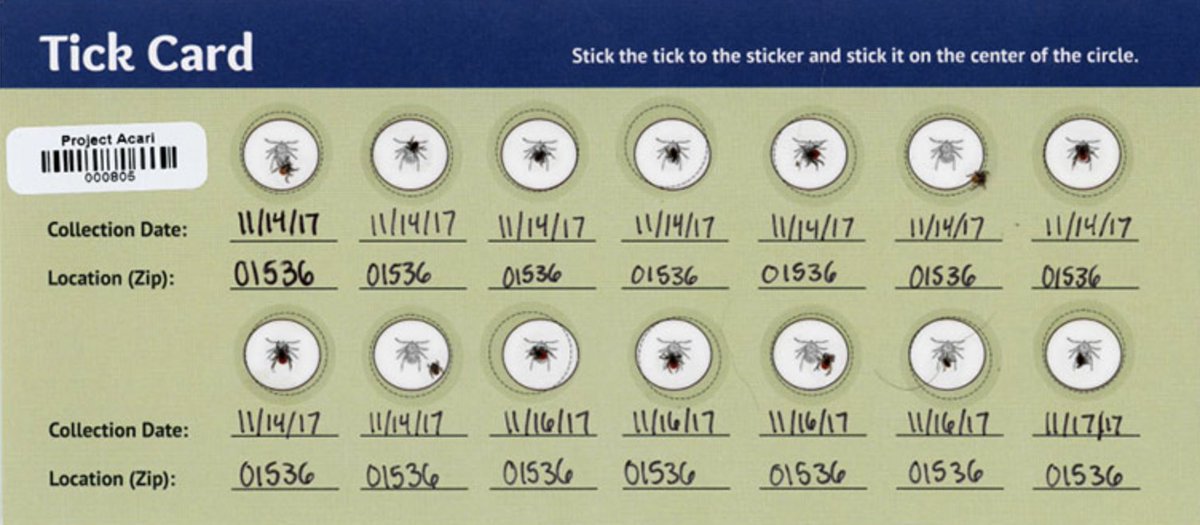Perceptions of #dog breed temperments are ingrained in our culture. Breed #stereotypes play out in dog parks, show up in city ordinances & leases, are celebrated at dog shows, and infuse Hollywood movies... but what if I told you dog temperment doesn't work like that? 1/n 

ANNOUNCING OUR NEW, AT-LEAST-8-YEARS-IN-THE-MAKING-BUT-WHO'S-COUNTING, +FANCY-GENOMICS #DOG temperment PAPER!!!! @UMassChan @broadinstitute @karlssonlab @darwinsarkfnd #ScienceResearch @iaabc 2/n science.org/doi/10.1126/sc… 

Before I unpack our findings, I have a conflict of interest to disclose: I AM A CAT PERSON. 3/n
THE DATA:
18,385 dogs (including 2,155 w genetic data)
177 breeds represented
9,376 mutts (mixed/unknown ancestry)
1,830,556 owner survey responses @Gencove @TerraBioApp @BroadGenomics @NeogenCorp 4/n
18,385 dogs (including 2,155 w genetic data)
177 breeds represented
9,376 mutts (mixed/unknown ancestry)
1,830,556 owner survey responses @Gencove @TerraBioApp @BroadGenomics @NeogenCorp 4/n

Our idea: People know their dogs ... and REALLY like to talk about them. Let's ask them at darwinsark.org! All dogs welcome: purebred, mixed breed, mystery dogs. From anywhere in world. Result? DATAPALOOZA! @designerguy #OpenData #CitizenScience #citizensciencemonth 5/n
It all started in 2014 under (now sadly gone) phylomobile @broadinstitute
"What do you do?"
"Dog genomics"
Out comes phone.
"This is my dog Max! He does the funniest things"
It hit me. THIS IS DATA. darwinsark.org was born #ScientistsScience #CitizenScience
"What do you do?"
"Dog genomics"
Out comes phone.
"This is my dog Max! He does the funniest things"
It hit me. THIS IS DATA. darwinsark.org was born #ScientistsScience #CitizenScience

You've probably heard #breed stereotypes. "Of course my dog is friendly - it's a golden". But are golden retrievers unusually friendly? Are Siberian huskies mischievous? Are beagles stubborn? Are chihuahuas vigilant? 7/n 

NOT SO MUCH! Less than 9% of the variation in temperment traits are explained by breed. Owners reported huge range of temperments in every breed, making it impossible to accurately predict an individual dog's temperment from its breed alone 8/n science.org/doi/10.1126/sc… 

Border collies are on average more "biddable", and labradors are on average more "human social" (comfortable w unfamiliar people) but plenty deviate from expected
Doubtful? Explore what owners told us for yourself: darwinsark.org/muttomics_dog_… @codeanticode 9/n
Doubtful? Explore what owners told us for yourself: darwinsark.org/muttomics_dog_… @codeanticode 9/n

Which breeds are significantly different on which traits? We tested thru permutation: Choose 25 beagles & 25 other dogs at random (imagine pulling dogs out of very big hat) & measure difference. Repeat 500,000 times. For every breed. For every trait. 10/n science.org/doi/10.1126/sc… 

Confounder alert! Do breed stereotypes influence owner responses? "OF COURSE my lab loves people" “Of course my pointer points!" But we have PERFECT stereotype control: mutts aka "who knows?" ancestry dogs. First author @morrilleen explains: 
https://twitter.com/morrilleen/status/1520450692460290051?s=20&t=Jh1N9JY29G6mqjqu6PJejg11/n

What was least heritable AND least connected to breed? "Agonistic threshold" aka "how easily dog is provoked by a frightening, uncomfortable, or annoying stimulus" aka "aggression". We found no support for policies targeting particular breeds 12/n science.org/doi/10.1126/sc… 

Which breed gets bragging rights as smartest? Dogs from herding breeds tend to be more biddable (respond to human direction). But is that intelligence? Dogs from toy breeds tend do their own thing, but they may still get what they want! 13/n science.org/doi/10.1126/sc… 

Dogs are dogs, no matter the breed. We’ve lived side-by-side >10,000 years
Breeds are less than 200 years old
We changed what dogs look like - not who they are. Dogs love life (96% of participants agree), love their people (92% agree) & are curious about world (90% agree) 14/n
Breeds are less than 200 years old
We changed what dogs look like - not who they are. Dogs love life (96% of participants agree), love their people (92% agree) & are curious about world (90% agree) 14/n

9 out 10 of our participants agree: their dogs seek human companionship. Life experiences have huge effect on your dog's temperment. It's on us to provide training, enrichment, and companionship pet dogs need. Just ask Bandit @Mammals_Suck 15/n
https://twitter.com/mammals_suck/status/1394347186226229253
Dogs & people aren't that different. Nearly all the same genes doing mostly the same thing. Dogs share our homes, food, activity levels, and even microbiomes. Your couch IS their natural habitat. Dogs are a powerful & complex natural model @DogAgingProject @adriakarlsson 16/n 

#GWAS time! Gets stuck behind objects? association near gene linked to cognitive performance. Howling? gene involved in human speech development. Friendly with strangers? gene involved in long-term memory formation. Conclusion: ALL DOG GENOMICS WORKS 17/n science.org/doi/10.1126/sc… 

The future of #dog #science is here. We're harnessing the #genetic & #environmental complexity of dogs as individuals, and the close bond between people and dogs. Sign up today for DarwinsArk.org and partner project @DogAgingProject 18/n 

So what’s next? PUPPIES. In this paper, we show behaviors like retrieving, herding, pointing, howling, etc are unusually heritable. But how does a change in DNA drive a dog to retrieve? How can watching puppies videos help? Stay tuned ... 19/19 END @dnagenotek
• • •
Missing some Tweet in this thread? You can try to
force a refresh





